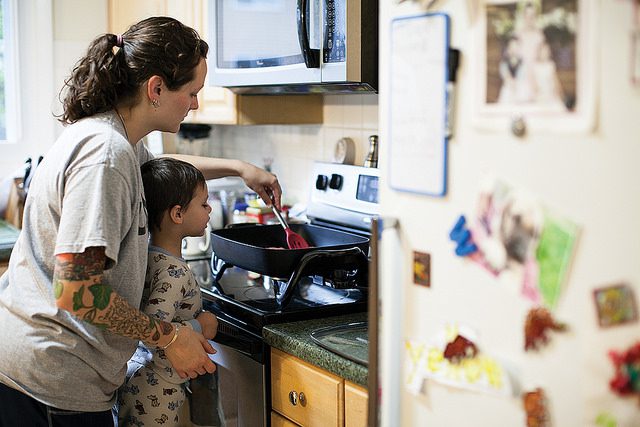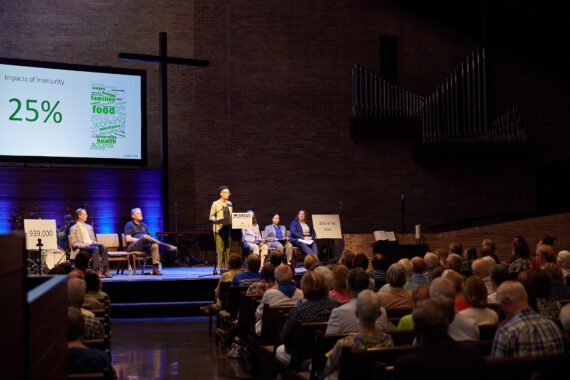Washington, D.C. – Women, particularly single mothers, are disproportionately affected by poverty and hunger, according to a new analysis, Hunger and Poverty among Female-Headed Households, released today by the Bread for the World Institute.
“Female-headed households make up just over half of American low-income households with children,” said Asma Lateef, director of Bread for the World Institute. “Single mothers and their children have higher rates of hunger and poverty than other families. Two factors that contribute to higher poverty rates among women are the gender wage gap and job segregation by gender.”
Thirty percent of all households headed by a single mother live in poverty, compared to 14 percent of all U.S. households. There are 4.7 million low-income households headed by a single mother.
Women of color face an even greater wage gap and are more likely to hold jobs that do not offer benefits. According to the U.S. Census, households headed by single African-American and Latina women are at far higher risk of poverty and hunger than other U.S. households.
Women make up the majority of workers in the 10 low-wage occupations with the most employees. Women with a high school diploma or less are paid only 76 cents for every dollar paid to men with the same level of education. Low-wage jobs are also less likely to provide health insurance for employees, leaving women and their children without access to essential healthcare services.
Closing the gender wage gap would cut poverty in half among working women. “If we expect to reduce poverty and hunger among women and children, we have to tackle the wage gap and the concentration of women in low-wage jobs,” Lateef said.



